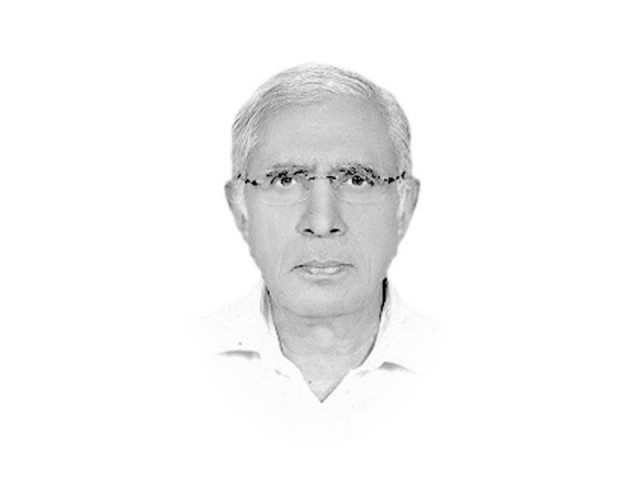Assets beyond means
British govt commitment will reduce the number of opportunities for criminals to use shell companies to hide wealth

The writer served as executive editor of The Express Tribune from 2009 to 2014
The British government is said to have recently renewed its commitment to introduce an “overseas companies’ beneficial ownership register,” meaning that overseas companies owning or buying property in the UK or vying for government contracts will be required to provide details of their ultimate owners. This will ideally reduce the number of opportunities for criminals to use shell companies to hide their wealth, and help law enforcement track illegal money.
The British government is also said to have created a new National Economic Crime Centre (NECC) to crack down on money laundering, which is estimated to cost taxpaying households in the UK $340 each year. This new organisation, one hopes, would facilitate the Sharif family to fight the NAB case to the entire satisfaction of the accused as well as the accuser and relieve Pakistan of the agony it has been undergoing since July.
British Home Secretary Amber Rudd has emphasised that although London is considered a major global financial centre and one of the safest places in the world to do business, billions of pounds are laundered through the city each year. According to a video released by Britain’s Home Office, the NECC will “use intelligence and analytical capabilities from [the] government, law enforcement and the private sector to tackle high level fraud and money laundering.” It will be based in the National Crime Agency (NCA) and will spearhead a cross-sectoral effort to combat economic crime. “Together we will make the UK a hostile environment for serious and organised criminals involved in economic crime,” Nigel Kirby, deputy director for the NCA’s Economic Crime Command, announced.
This move is part of a larger British strategy to ramp up anti-corruption efforts. Last Monday the British government released a new anti-corruption strategy for the period from 2017-2022 in order to target “corrupt insiders” in sectors, including policing, prisons and border force. In a gesture likely motivated by the uncertainties of the Brexit negotiations and Britain’s break with EU regulations, the Home Office made “strengthening the integrity of the UK as an international financial centre” one of its six anti-corruption priorities. Additionally, the new legislation in Britain will let the NCA directly send the worst cases of economic crime to the Serious Fraud Office, an enforcement branch independent of the NCA. Although the NECC will target high-profile cases of money laundering linked with organised crime, Rudd has also emphasised the importance of cracking down on lower-level economic crime that threatens average British citizens.
Criminals involved in drug dealing and human trafficking in Britain are expected to make at least $120.3 billion in 2017 alone. This illegal money, in order to be useful to criminals, is made ‘clean’ through money-laundering processes, allowing them to avoid prosecution, asset seizures or tax audits. This statistic does not include money obtained through other illegal means such as fraud.
“There is a myth that there are no real victims of economic crime, but I have seen first-hand how it can ruin people’s lives. It is not a victimless crime,” Rudd declared. “I don’t know a single person who doesn’t know somebody who knows somebody who has been the victim of some sort of online fraud. On those two elements, high-level economic crime and everyday economic crime, we’re taking action to make sure we reduce it in this country.”
According to Organised Crime and Corruption Reporting Project, corruption is everywhere. An estimated $1 trillion are paid in bribes and another $2.6 trillion are stolen worldwide every year, according to the UN. These incredible sums make up five per cent of the world’s economy. And they mostly come out of the pockets of the poorest of more than the seven billion inhabitants of our planet. Corruption is not just about money. It’s the root cause of mass migration, human-rights abuse, poverty and death.
Published in The Express Tribune, December 16th, 2017.
Like Opinion & Editorial on Facebook, follow @ETOpEd on Twitter to receive all updates on all our daily pieces.















COMMENTS
Comments are moderated and generally will be posted if they are on-topic and not abusive.
For more information, please see our Comments FAQ